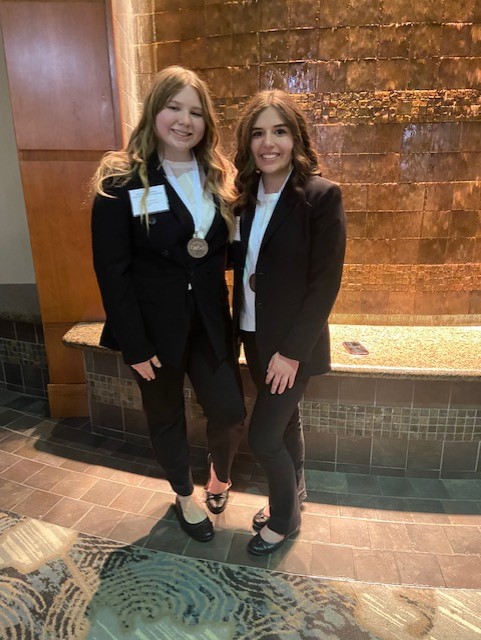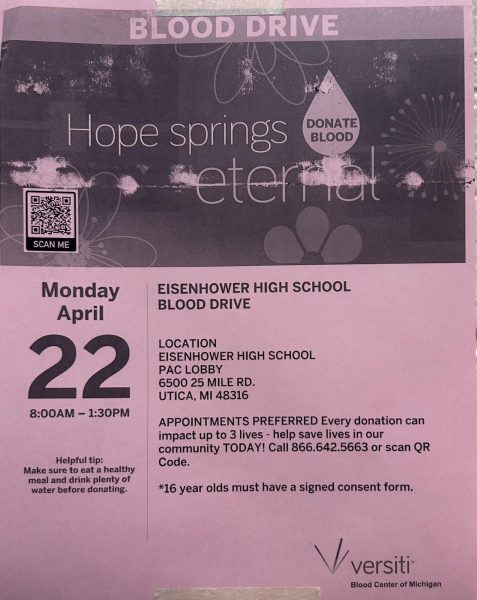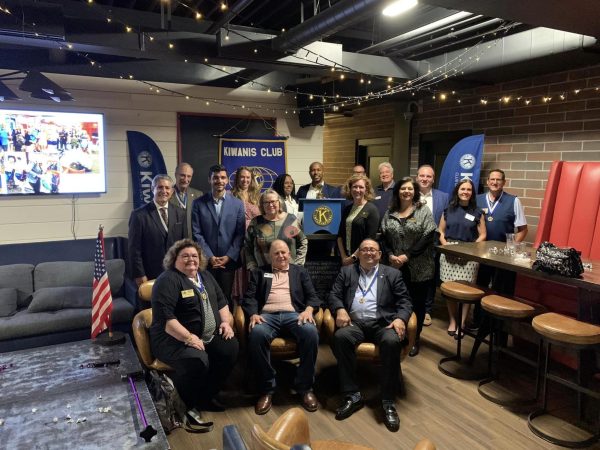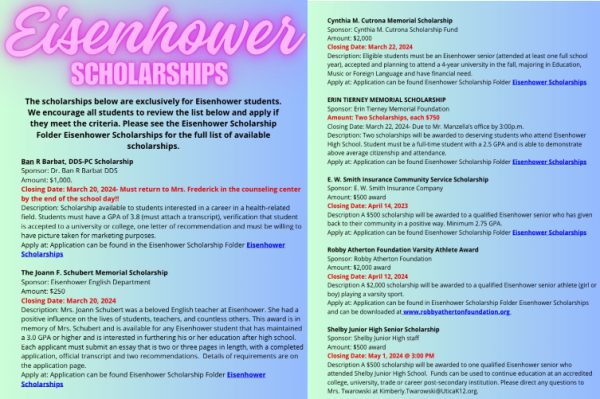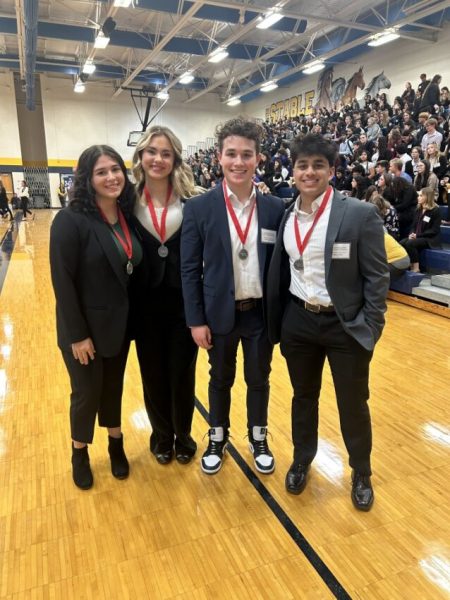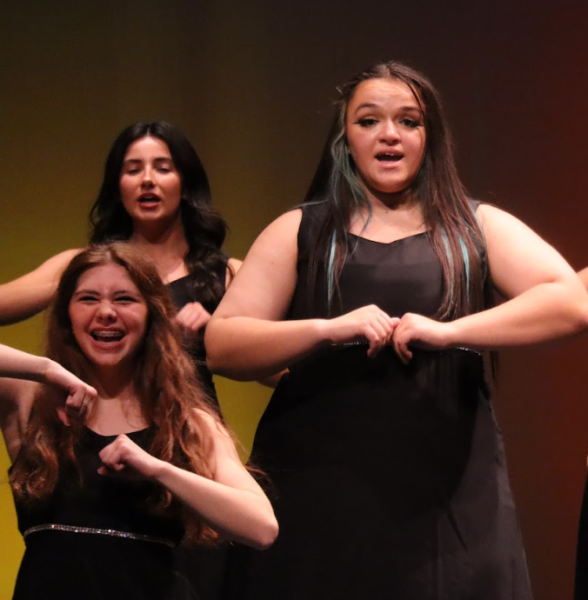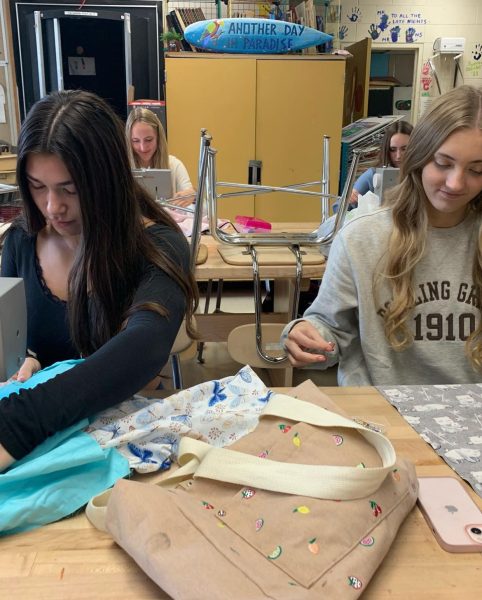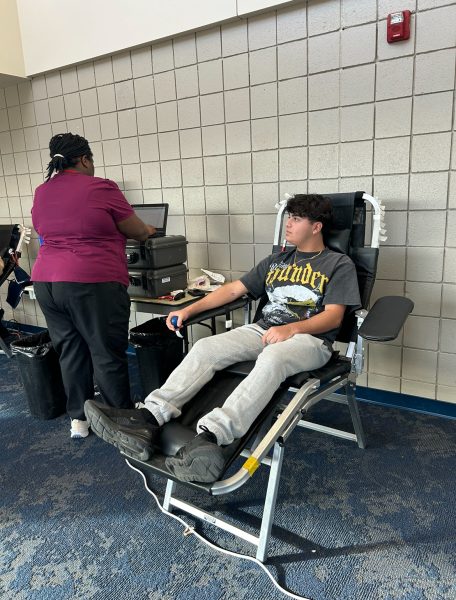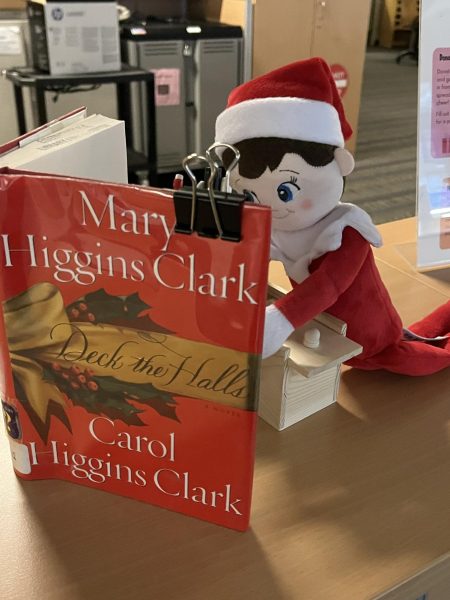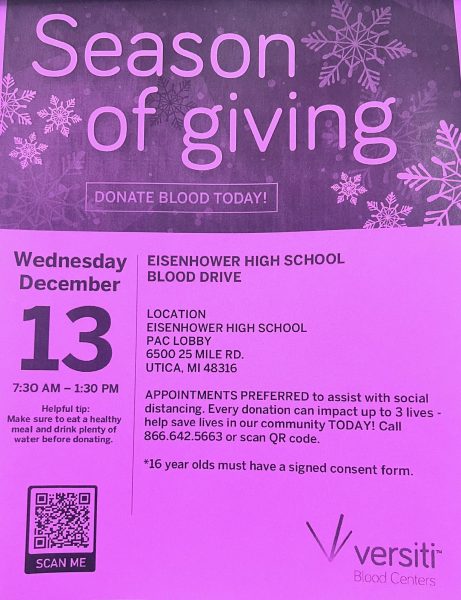Unforgettable medical medals
Learn how the Health Occupations Students of America (HOSA) competitors did at the state champion meet
–13, 14, 15, breathe! Standing next to each other, junior Chelsea Pankiewicz and senior Gwen Deras smile with their bronze medals. The girls competed against tough competition to place with the top three. “It’s difficult to say, we don’t know how other teams competed so it’s difficult to compare our performance to theirs, we don’t know if we could’ve placed higher,” Deras said.
Anatomy, physiology and CPR are some of the topics Health Occupations Students of America (HOSA) needed to know at states.
“Even though we did end up qualifying for internationals, it was pretty stressful for us because our AP tests were the following Monday,” junior Chelsea Pankiewicz said. “I definitely think we should’ve known some more of the things we got wrong or did incorrectly on the two parts.”
HOSA is an organization for students who are interested in pursuing an expertise in the medical field compete in different events to earn awards and recognition. The HOSA state competition took place in Traverse City on April 28. Senior Gwen Deras and junior Chelsea Pankiewicz, who competed in the first aid and CPR portion of the event, beat other competitors to win the bronze medal.
“We were stressed, adding our AP tests on top of the competition, we were worried, tired and not in the right mindset,” senior Gwen Deras said. “A few dumb mistakes during the CPR portion and a few questions wrong on the test made us feel disappointed because we forgot such little things.”
The first part of the event was to take a 50-question test covering anatomy and physiology. Since they passed, they would move onto the next part of the event. The next part of the event consisted of the girls to split up responsibilities when taking care of the infant mannequin then perform CPR, which is more difficult on infants. The pair’s next competition begins on June 21 and ends on June 25, they will be competing in first aid at the international HOSA competition.
“We were very shocked,” Deras said. “We feel we didn’t give our best performance; I was surprised to see that we were able to win bronze because the competition in our event was fierce.”
Despite revising all of the skills and questions, Pankiewicz and Deras were not confident in their ability to recall them to the same extent as they did in regionals, (which they won). Their medical science teacher and coach Jill Bologna was a big help in teaching the girls studying habits, practices and the competition guidelines. By giving the girls questions they wouldn’t expect, she helped them improve on their knowledge of their event.
“We did believe in ourselves, I do think we could have placed higher on the podium, but it doesn’t matter anyways since we did qualify to go to internationals,” Pankiewicz said. “We didn’t see others compete but at regionals, Henry Ford did place 2nd so we were nervous to go against them since our standards of placing were so high.”
Your donation will support the student journalists of Eisenhower High School. Your contribution will allow us to purchase equipment and cover our annual website hosting costs.

